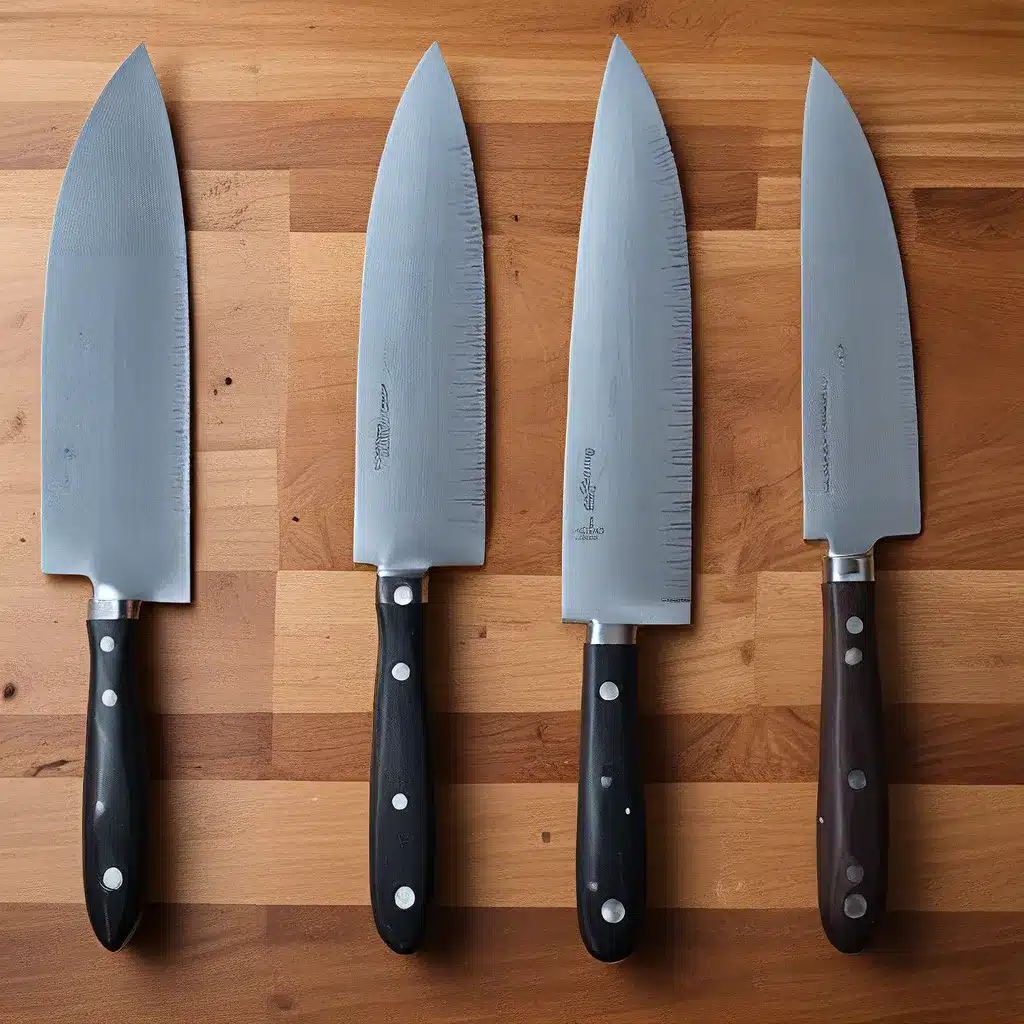
As a passionate home cook, I can attest to the transformative power of a well-maintained kitchen knife. It’s the difference between gliding effortlessly through ingredients and struggling with dull, laborious chops. Maintaining your knives isn’t just about sharpening them – it’s about cultivating a truly confident cooking experience.
The Art of Sharpening
When it comes to keeping your knives in tip-top shape, the foundation is sharpening. It’s a skill that takes practice, but once mastered, it can be truly meditative. I remember the first time I sharpened my chef’s knife – the satisfying ching as the blade glided across the sharpening stone, and the sense of accomplishment when I could easily slice through a tomato with minimal effort.
The key is to find a sharpening method that works for you. Some swear by electric sharpeners, while others prefer the control and precision of a manual sharpening stone. Personally, I’m a fan of the traditional whetstone approach – it allows me to feel the knife’s edge and adjust the angle as I go. It may take a bit more time, but the results are unparalleled.
The Chopping Block has a great guide on sharpening techniques, from the basic ‘push-pull’ motion to more advanced methods like the ‘scary sharp’ edge. I’d recommend starting there to find the approach that best suits your needs and comfort level.
Beyond Sharpening: Maintenance and Storage
Of course, sharpening is only the beginning. Proper knife maintenance is crucial for keeping your blades in top condition. This includes regular honing with a steel or ceramic rod to realign the edge, as well as cleaning and drying your knives after each use.
Believe it or not, how you store your knives can also have a significant impact. Throwing them in a drawer with other utensils is a surefire way to dull and potentially damage the edges. Instead, consider a magnetic knife strip or a wooden block – both of these options help protect the blades and keep them readily accessible.
The Confidence Factor
Now, you might be wondering, “Why all the fuss? It’s just a knife, right?” But the truth is, confident knife skills can transform your entire cooking experience. When your blades are sharp and well-maintained, you’re able to tackle tasks with precision and ease. No more wrestling with stubborn onions or hacking away at tough meat.
High-quality knives are an investment, and taking the time to care for them pays dividends in the kitchen. I know from personal experience that the more confident I feel with my knives, the more I enjoy the entire cooking process. It’s like having a trusted partner by your side, ready to tackle any culinary challenge that comes my way.
Developing a Knife Mindset
Of course, maintaining your knives is only half the battle. The other crucial element is developing a “knife mindset” – a deep understanding and appreciation for these essential tools.
I’ll never forget the advice my mentor, Chef Alex, gave me when I first started working in a professional kitchen. He said, “The dishwasher is the most important person in this kitchen. If they don’t do their job well, everything falls apart.” At the time, I was confused – I thought the chefs were the ones who really mattered. But as I spent time in that kitchen, I began to see the truth in his words.
The dishwasher’s role is critical – they ensure that the knives, pots, and pans are clean, dry, and ready for the next shift. Without that foundation, the entire operation would grind to a halt.
This lesson has stuck with me, and it’s shaped the way I approach my own kitchen. I now treat my knives with the utmost care and respect, knowing that they are the tools that allow me to create culinary magic. It’s a mindset that goes beyond just sharpening and honing – it’s about truly valuing these essential implements.
Putting It All Together
Maintaining your kitchen knives is not just about sharpening and storage – it’s about cultivating an entire culinary mindset. It’s about understanding the importance of these tools, treating them with care, and developing the skills to use them with confidence.
Whether you’re a seasoned chef or a passionate home cook, I encourage you to embrace the art of knife maintenance. Take the time to sharpen, hone, and store your blades properly. But more importantly, imbue them with a sense of reverence and appreciation. Your cooking will thank you for it.
Who knows – you might even find that the simple act of sharpening a knife can be just as meditative and satisfying as the cooking itself. After all, as Chef Alex taught me, the foundations of a great kitchen are often the most overlooked. So let’s celebrate the humble knife, and elevate our culinary confidence one sharp edge at a time.


